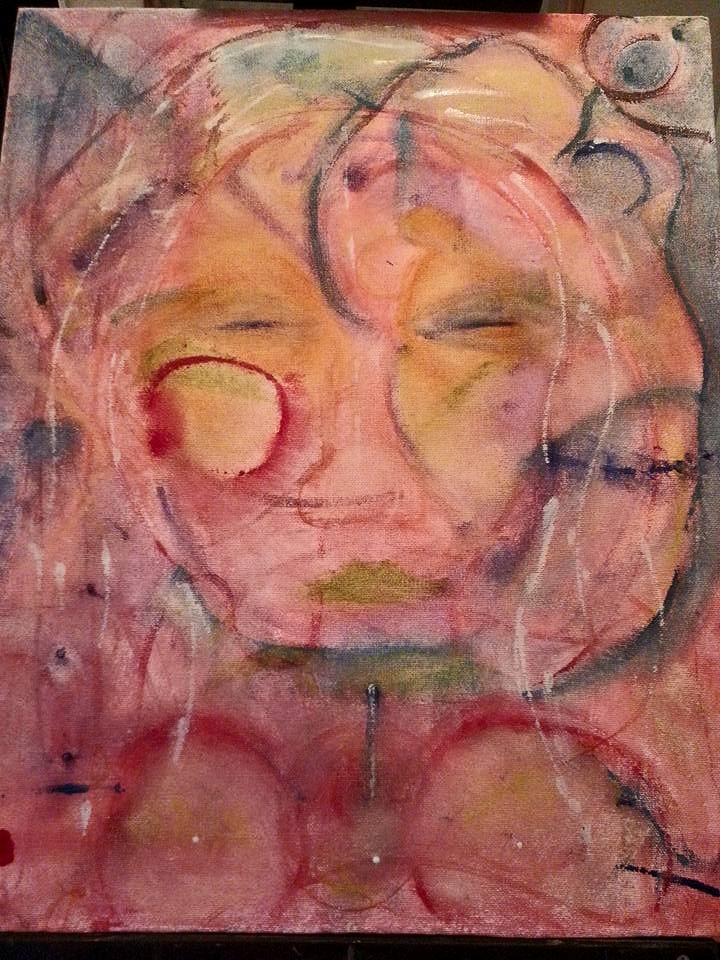Author’s note:
NT is the abbreviation for the word neurotypical. It is a familiar term to those on the autistim spectrum and was originally used to describe those individuals who do not have neurological brain differences. NT is generally accepted as a substitution for the word ‘normal,’ as the word ‘normal’ is subjective. For some, utilizing the word ‘neurotypical’ is an active choice, for the act of using the word ‘normal,’ in reference to those not on the autism spectrum, implies that those on the spectrum are not normal.
On numerous accounts members of the autistic and/or Aspergers community have been alienated, ostracized, and pointed out by the majority as inherently flawed or wrong. Individuals on the spectrum continue to site feelings of extreme isolation from mainstream society and times of repeated criticism in which observers offer out measures in which the person with autism/Aspergers might attempt to fix or adapt him or herself to be more ‘normal.’ In short those on the spectrum are often criticized and taught how they might better behave in order to assimilate. I know of many who have contemplated or attempted suicide based on the intense isolation associated with Aspergers, and had a friend, who took his own life, just last year. I, myself, am not immune from the critics who want me to behave more like them. Not so long ago, I received an extended email from a professor of psychology, who, having had just found out I had Aspergers, felt it reasonable and justifiable to critique my correspondence and give advice on how to act and function as a professional at the university.
In a broad sense, as a people, recognized as the same through common characteristic traits, habits/routines, neurological functioning, gene/enzyme variations, ailments, and the like, those on the spectrum have been singled-out as different from the start, even as they themselves might not recognize the differences. To some, we (those on the spectrum) feel ‘normal’ to our own selves, as how we function and experience life is all we know, and will ever know. Yet still, despite our own inability to change to suit the comfort-level of others, we are told we are somehow made ‘wrong.’ To be told you are flawed or inferior based on various attributes, such as skin color, race, sect., or religion, is harmful and undoubtedly can lead to hurt. Though while the effects of discrimination often create the breeding ground for cruelty, and cause much suffering, there still remains a means for the oppressed to escape psychological affliction through the understanding that essentially they are not the color of their skin or the ideologies they uphold. However, it can be argued, one suffers without means for psychological relief when the majority proclaims that the manner in which a person functions and thinks is wrong. For how can one eradicate self from self, and become that which he is not?
This continual bombardment of judgment of another based on his behavior, whether the bombardment be indirect, direct, or implied, wears down the spirit—chips away at the person’s understandings of self and the way in which he or she relates to the world. In essence, destroys the foundation of his existence. The confusion brought on by criticism brings about a distinct feeling of being misplaced and plopped down on the wrong planet. In addition, often people on the spectrum can’t recognize or do not know others that are like-minded, and therefore, don’t even have a company to retreat to for comfort and support when feeling judged. And if another, on the spectrum, did know such a people akin to himself, he might shy away for a variety of reasons related to the challenges of Aspergers, e.g., distrust, frustration, embarrassment, social insecurities, sensory- and processing-overload from being in a crowd.
Accordingly, as a collective, we are thusly isolated twice: once in our tendencies to be publicly noted in a not so positive light for our unique behaviors and attributes, and secondly in our tendencies to instinctually self-isolate for what we believe is necessary for our own protection.
Throughout history it is evident that people who have been oppressed and isolated eventually reach a point of having had enough. At that junction, two outcomes can occur: an oppressed subgroup can crumble—resulting in multiple scenarios of further oppression and breakdown. Or an oppressed subgroup can rise above the oppressors through the process of connection and action, such as action based on a collective-reckoning as a result of a people coming together and sharing mutual ideas, support, awareness, and so forth.
Singling out others as NTs and attaching attributes to the subgroup of NTs is an example of the Aspergers community rising above oppression through action to avoid further oppression and breakdown. The act itself enables a previously ostracized isolated sum to reclaim a sense of power and self-worth. In theory, when a collective recognizes the existence of another group beyond their ‘own’ group then the group they are a part of becomes more real. By merely creating further separation, between ‘them’ and ‘us,’ the existence of both groups becomes more substantiated. The stronger a group becomes in existence the more members sense their group is real; and accordingly, the more a member senses a group is real the more he or she feels part of a community, and the less he or she feels alone.
Naturally, based on repeated years of isolation, if presented with the chance, many with Aspergers gravitate towards the opportunity to feel less alone and more a part of something. Feasibly, before knowing others that are similar in our making, we have spent most of our lives thinking we are the anomaly and therefore alone on this plane. Finding a ‘clan’ so to speak, provides means of much healing and growing. Because of this, when supported within the makings of a group of like-minded people, a person with Aspergers might subconsciously reinforce the ‘realism’ of the group in order to build up the feelings of unity and tear down the feelings of isolation. In so doing, he or she might reinforce this realism of the group by perceiving others beyond the group as outsiders, and then perhaps accentuate the substantiation of his or her group more by creating or partaking in opportunity to claim the others as less-than, different, or not-enough.
Thusly, through the aforementioned, there is a justifiable reason (psychological sense of belonging), behind a person with Aspergers actions when he or she points out differences between his/her established sect and another. In this light, the use of the label NTs makes perfect sense. Furthermore, using the term NT in a derogatory manner also makes sense—as defining another outside the group as inferior brings about more distinction between the two sects, and as a consequence reinforces the subgroups realism further. Perhaps, along these lines, the creation of two subgroups, that being 1)Aspies and 2) NTs, was inevitable. However, arguably, a justifiable action does not equate a just action.
As mentioned before the breaking point of the oppressed usually leads to a crumbling of self or proactive action; and often, when faced with continual insult and injury, a person must swing to one side of the pendulum or another in order to eventually find balance. As a collective subgroup, we do the same. We swing upon the pendulum—we respond and hide or we respond and retaliate. Part of retaliation is in pointing finger and blaming others. Part of hiding is pointing the finger at self and blaming self. Neither is beneficial in the long term, and can wreak havoc on multiple psyches and relationships.
Regardless of the cause, clearly, there is evidence that through the act of calling others NTs and attaching derogatory meaning to the name NT, discrimination is being recreated in reverse.
People with Aspergers know what it is like to be ostracized. Perhaps to turn around and do the same with closed eyes is understandable. And perhaps, too, to do the same to gain a sense of me-ness and union, and that long sought after feeling of being a part of something, is completely justifiable. But to repeat what was done to us through reverse discrimination with eyes wide open is to start a new type of war, one in which we set out to be the victors and the others the oppressed. This mentality of ‘we verses them,’ or even the simplicity of ‘we and them,’ creates more waste—increased harm and debris that will need to be cleaned up and rectified. Eventually, oppressors become blinded by their own hate, as they fortify their creation of sect through a cyclic self-feeding process based on various means of separation. In the end, by choosing to separate from others, we create a world that is the exact definition of what diminished our worth and standing in the first place.
With this said, I ask you to keep in mind that a subgroup of any definition is at risk of adapting an elitist attitude. For this reason, as a collective community of people who support those on the spectrum, it is crucial to heed caution in the way we choose to see others in general, but specifically in how we choose to see and classify the collective group we name NTs.
~
Author’s Note: This post was originally composed when Asperger’s Syndrome was a stand-alone diagnosis. At that time, not much was written or discussed about females on the autism spectrum, particularly not the rules of semantics to utilize when referring to other autistic women. In the four years since my online writings began, much to do about semantics in relationship to Autism Spectrum Disorders has emerged. Even the word “disorder” is a trigger word for some, myself included. Today, I prefer to write “I am autistic” or “I am Aspie,” when referring to myself, instead of “a person with autism/Aspergers.” (People-first versus condition/diagnosis-first) Primarily, because I don’t have Aspergers—rather I amAspie. Aspergers is innately who I am as an individual and not some tagline—like a disease.With that said, while I am sensitive to the ongoing terminology debate and the growing trend (and need) to move beyond identifying one’s self with a “disorder,” in order to keep the authenticity and voice of the original works, including accurately reflecting how I experienced life and trends in the societal and psychological fields at the time, I chose to not make any specific broad-based terminology alterations in this post.
Samantha Craft (@aspergersgirls) compiled this page. She has corresponded with thousands of individuals touched by autism in their lives. Sam is the author of Everyday Aspergers, a revealing memoir, ten years in the making, about the everyday life of an autistic woman. More information can be found atSpectrum Suite LLC, myspectrumsuite.com

